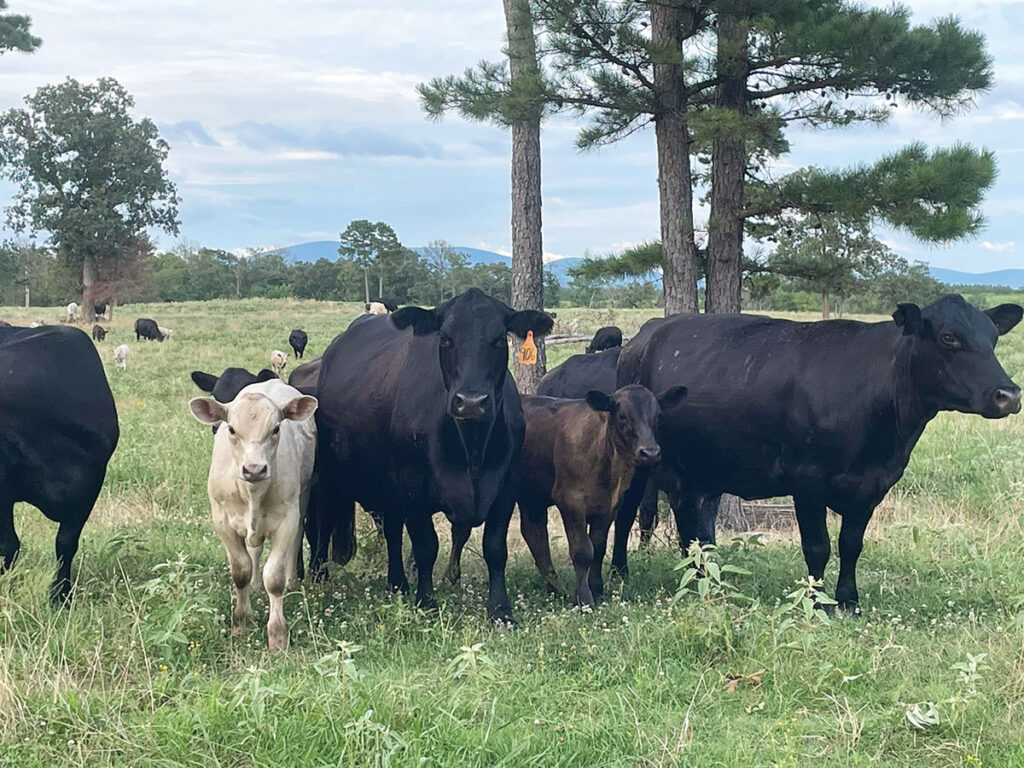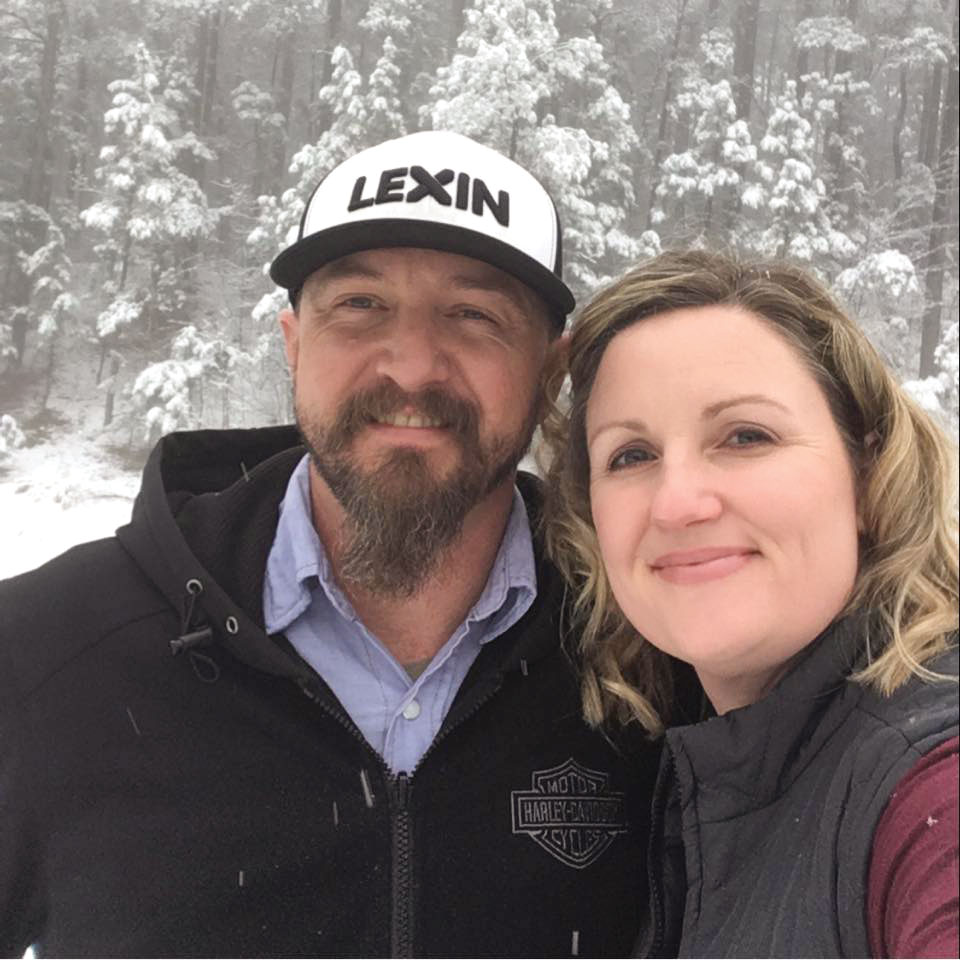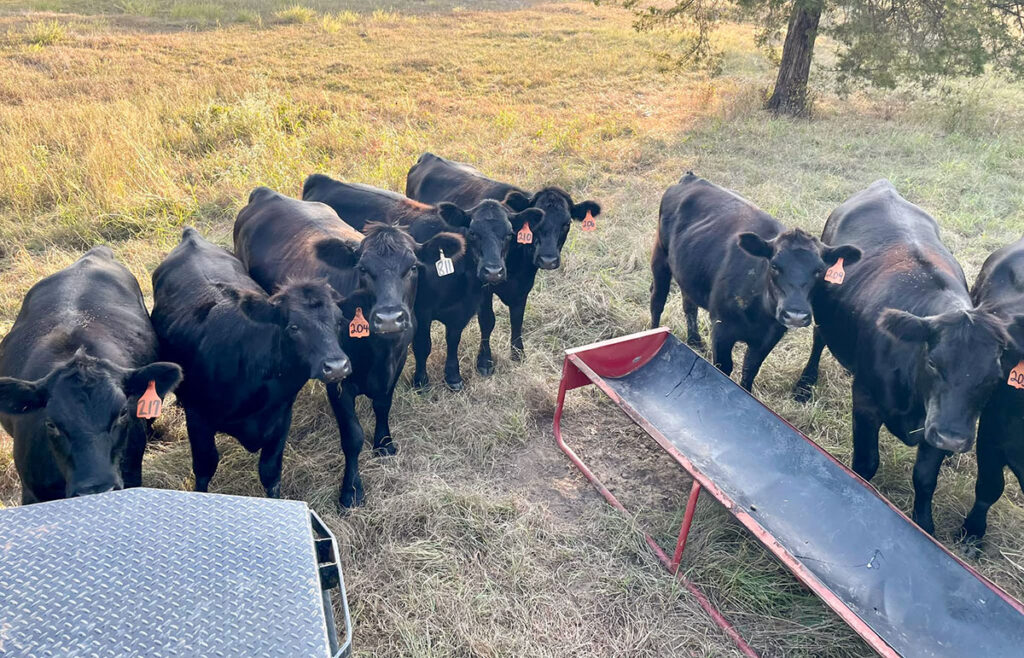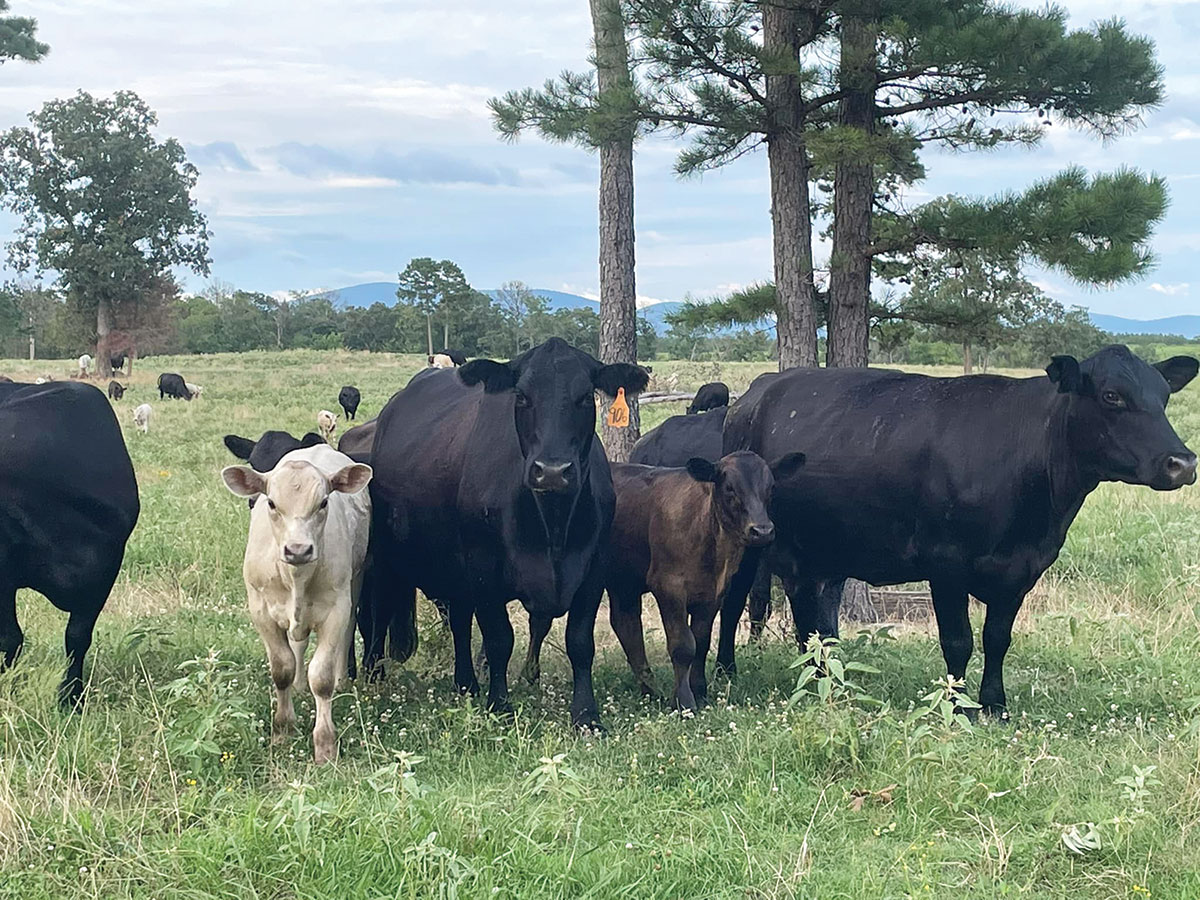
T.J. Martin’s clients trust him to provide a quality, chemical free product
MUSE, OKLA. – T.J. Martin has been part of the cattle business for most of, if not all his life. As a third-generation cattleman, it’s all he has seemingly ever wanted to be part of.
“I grew up just south of where I’m at now in McCurtain County (Okla.). My family ran range cattle,” T.J. said. “We had about 20 or more sections of land that we basically just range grazed. My grandpa was an 11-time world-champion cowboy; so that’s what I did. I’ve always had cattle and just my way of life.”
Yet,nothing T.J. did growing up could have foretold the path he would take.
Along with his wife, Amanda, T.J. is the owner and operator of Martin Family Beef in Muse, Okla. They run a 350-acre ranch while working full-time jobs.
T.J. keeps around 50 head of cattle and a few bulls on the ranch.

“My wife and I have been ranching ever since we got married in 2002,” T.J. said. “We’re both third-generation ranchers and so we were just running commercial pasture cattle, usually trying to send groups to Oklahoma City. I’ve been retaining heifers and have had a closed herd since 2014 at least. Everything I’ve got is what I’ve raised.”
That was his entire operation up until a few years ago when he was asked a simple question.
“I just had some people at church that had moved into the area that had been hitting me up, ‘Hey, why don’t you sell us some beef?’ I’d never really thought about it,” T.J. said. “This was probably just right before COVID hit or right during COVID in 2020. They kind of kept on. It was more than just a passing remark.”
T.J. decided to test the waters.
“I thought, ‘Man, what the heck? Let’s just try it.’ I got one calf and I fed it a little bit and sent it to the butcher and let them have it, see how it goes,” T.J. recalled. “It went from there. They really loved it. They talked about how good it was.”
At the time, there was a national trend of people looking to get their food, especially beef, locally grown. It also helped T.J. make sure his cattle were all natural.
“I’d made sure it didn’t have any antibiotics, no growth hormones, anything like that,” T.J. said. “I knew that was kind of important to people, but I didn’t know how important it was. I knew I didn’t want to eat it either, so I wasn’t going to sell them something my family wouldn’t eat.”
It wasn’t until T.J. got the approval of his family that he decided to take a deeper dive into selling beef cuts as part of the business.
“It began with friends and neighbors,” T.J. said. “I just kept getting phone calls, kept getting more phone calls from people that had heard from their neighbor or their friend. I just kept pulling out calves from my Oklahoma City group to feed out.
“I just weaned calves and I don’t know that we’re going to have a group to send Oklahoma City this year. I think I’m going to have most of them going to be sold as fresh beef. Last year, we stayed sold out about three months in advance. I’m staying sold out about six months in advance right now. So between the heifers I’m going to keep and what my family’s going to eat, I don’t know that I’m going to pay for the trip to Oklahoma City. What other calves I have, which are very few, will probably just go to my local sale bar. It’s a good problem to have, but I still don’t know how I’m going to deal with it.”

T.J. said he hasn’t done anything fancy or some intricate cross-breeding to make his Angus-influenced cattle for the beef program.
“We’ve been using Pharo (Cattle Company) bulls out of Colorado for a long time, just for all their breeding traits, characteristics,” T.J. said. “I’m trying to run about a 900-pound cow. That’s what I already had that was working to send those groups to Oklahoma City. It just so happened they work really well to feed out too.”
If T.J. could pinpoint one reason for the success of Martin Family Beef, it would be that his clients can trust him.
“I’m a man of my word. If I tell somebody how this calf’s been raised, then they can trust that’s how it’s been raised,” T.J. said. “I guarantee they haven’t been sprayed with any harsh chemicals, no fly spray. My pastures haven’t been sprayed with synthetic chemicals. I haven’t used any synthetic fertilizer, growth hormones, antibiotics, things like that. If that’ important to the people, then that’s what they get. I tell them exactly how that calf’s been raised and what it’s been through. That seems to be where the draw is. Just getting something local that’s fresh that you know the backstory on.”







